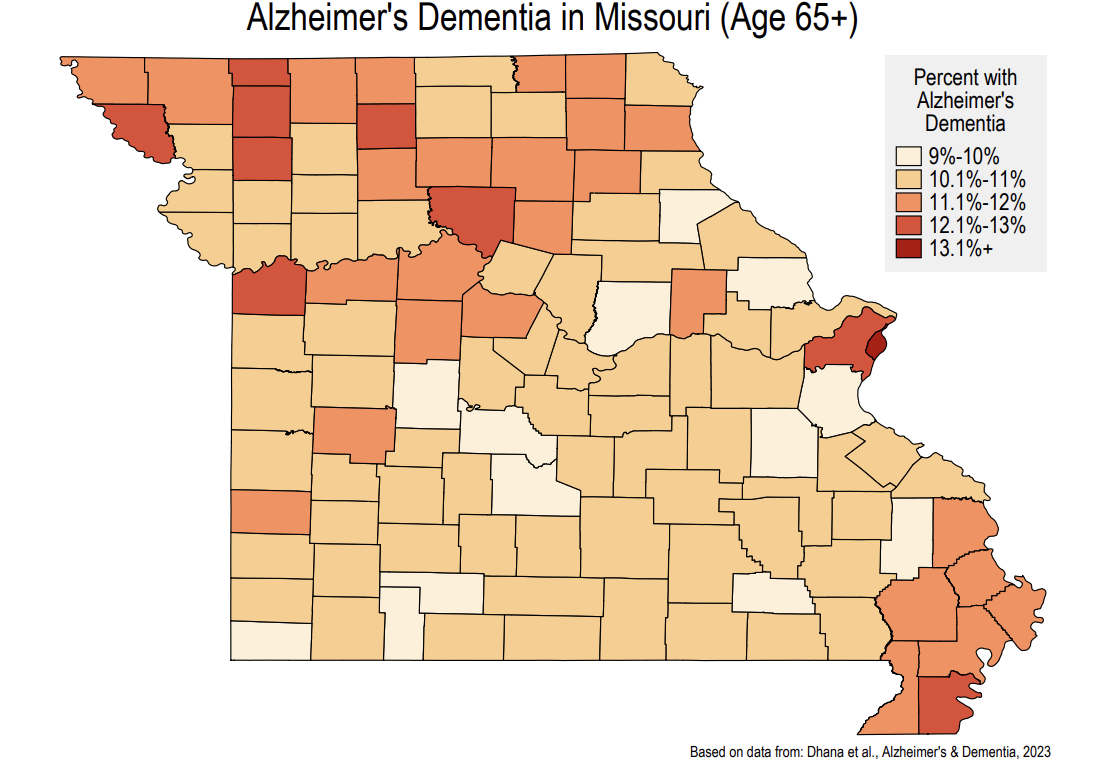Experts look for ways to help prevent and treat Alzheimer’s disease
COLUMBIA, Mo. (KMIZ)
As more people are diagnosed with Alzheimer's disease, researchers are looking at ways to help prevent and treat the illness.
According to the Alzheimer's Association, more than 120,000 people living in Missouri have Alzheimer's. Data released at the Alzheimer's Association's International Conference in July breaks down the percentage of people 65 and older who have Alzheimer's by county.

The data shows 10.5% for Boone County which is around 2,600 people. In Cole County, approximately 10.6% of residents 65 and older have Alzheimer's which equates to 1,400 people. In Osage County, around 10.7% of people have the disease which is about 300 people.
In order to try to avoid being a part of those numbers, one researcher who works at the Roy Blunt NextGen Precision Health Building said it's more important to focus on the prevention of the disease than treatment. Professor Ai-Ling Lin of the University of Missouri School of Medicine says at certain points of the disease, treatment can come too late.
"There is some concern in the scientific community about whether the target is correct or not because all of the pharma [is] developing drugs surrounding targeting beta-amyloid plaques," Lin said. "They thought as long as we remove these plaques, then the person will regain the functionality and restore their memory. Even though we remove the plaques, they still cannot regrow the brain cells."
Lin said through research, scientists are learning a person's brain can start to change two or three decades before Alzheimer's symptoms start to appear. She said it's important to take note of one's body and pay attention to any health factors including lower energy, diabetes, stroke, a traumatic brain injury and cardiovascular health.
Lin says diet should be a big focus for people looking to try and prevent the disease.
"Overall, [the] general rule is higher fiber, lower carb, higher healthy fats and a little bit of wine could be helpful," Lin said. "I really want people to know to have hope because this disease, I believe we have a way to mitigate it."
There has been some progress in finding some ways to help slow the progression of the disease.
Lecanemab, better known as Leqembi, is the first traditionally approved treatment to address the underlying biology of Alzheimer's for people in the early stages of the disease. It's recommended for individuals with Alzheimer's who have "evidence of a buildup of beta-amyloid plaques in the brain."
The medication was approved by the FDA in January. According to the Alzheimer's Association, the drug costs approximately $26,500 a year for patients.
